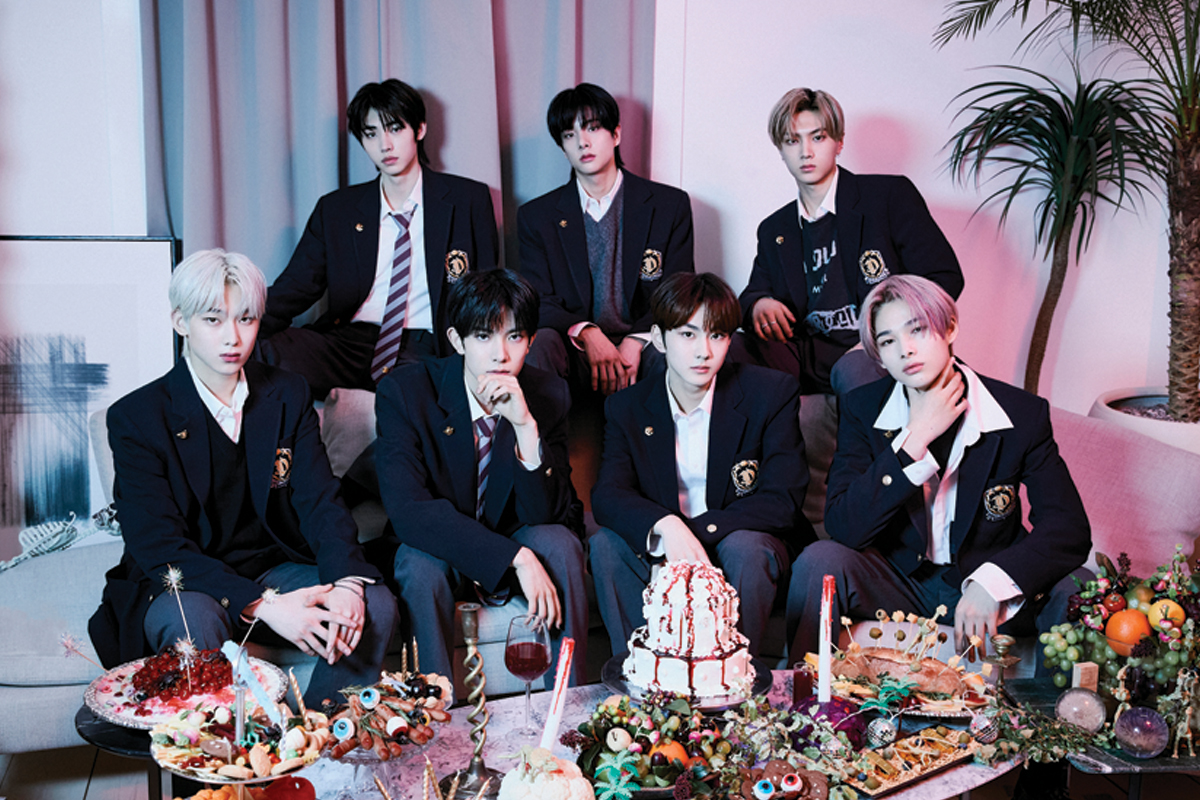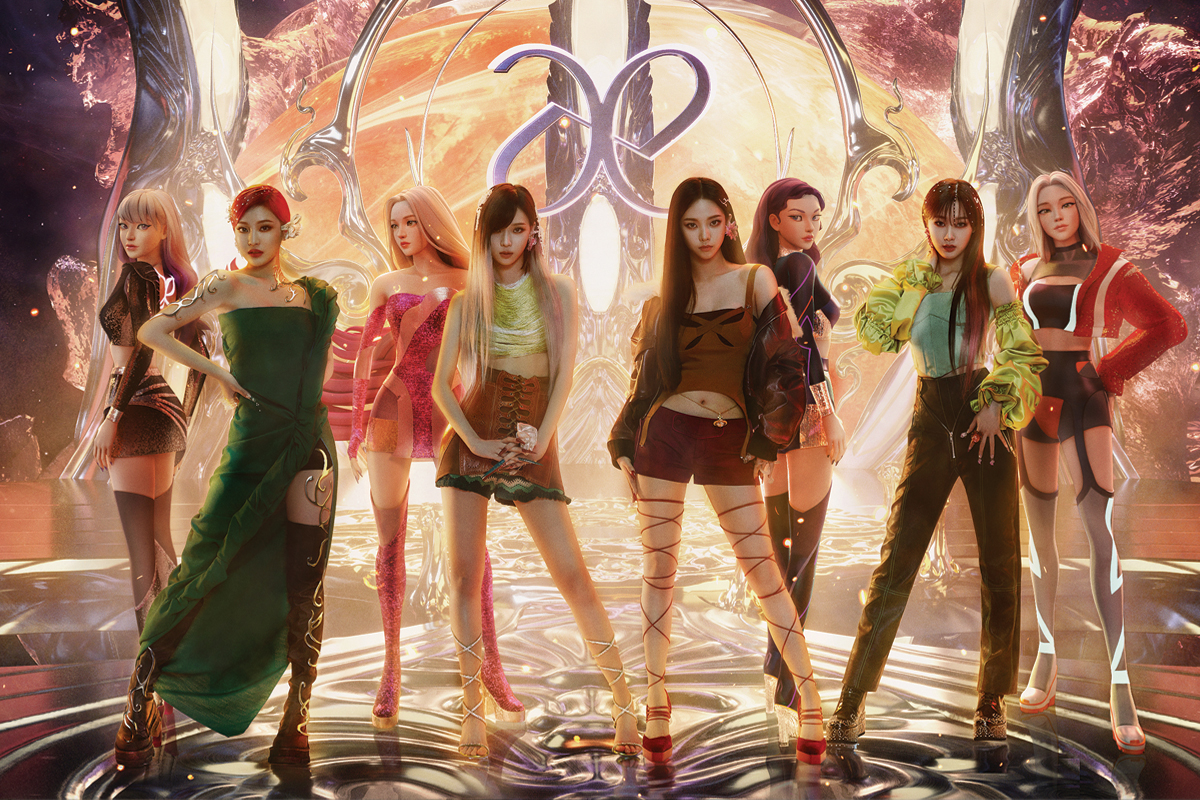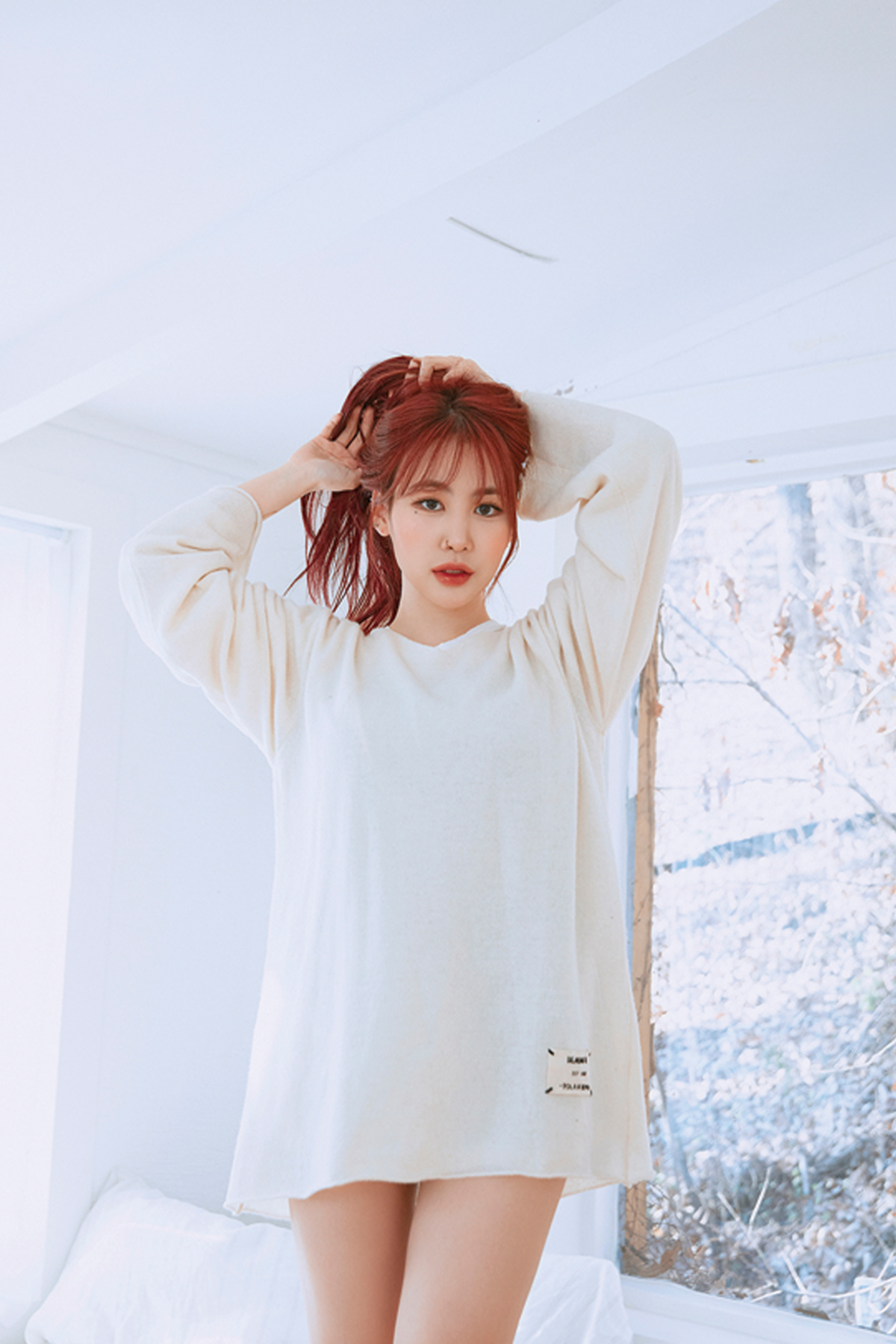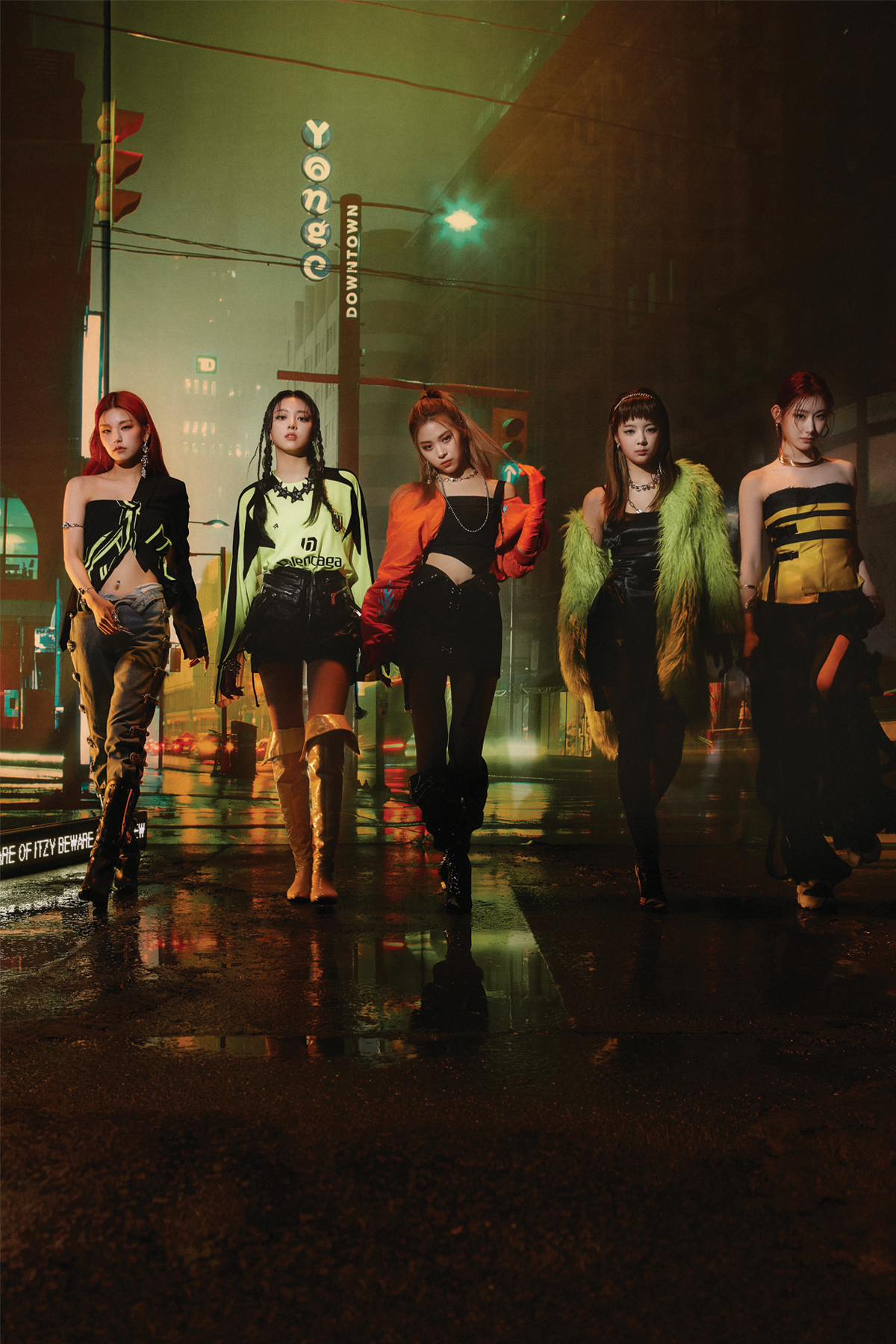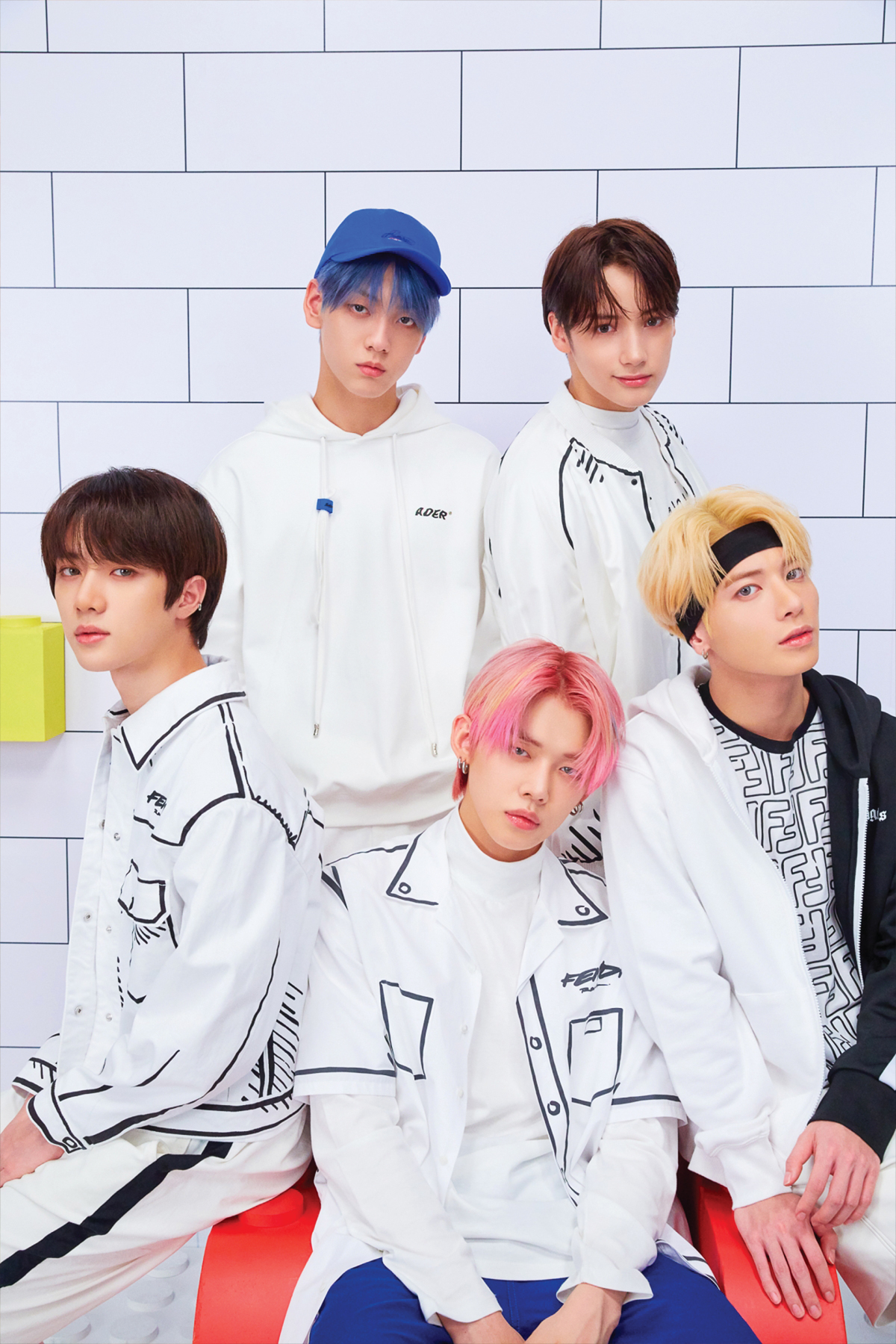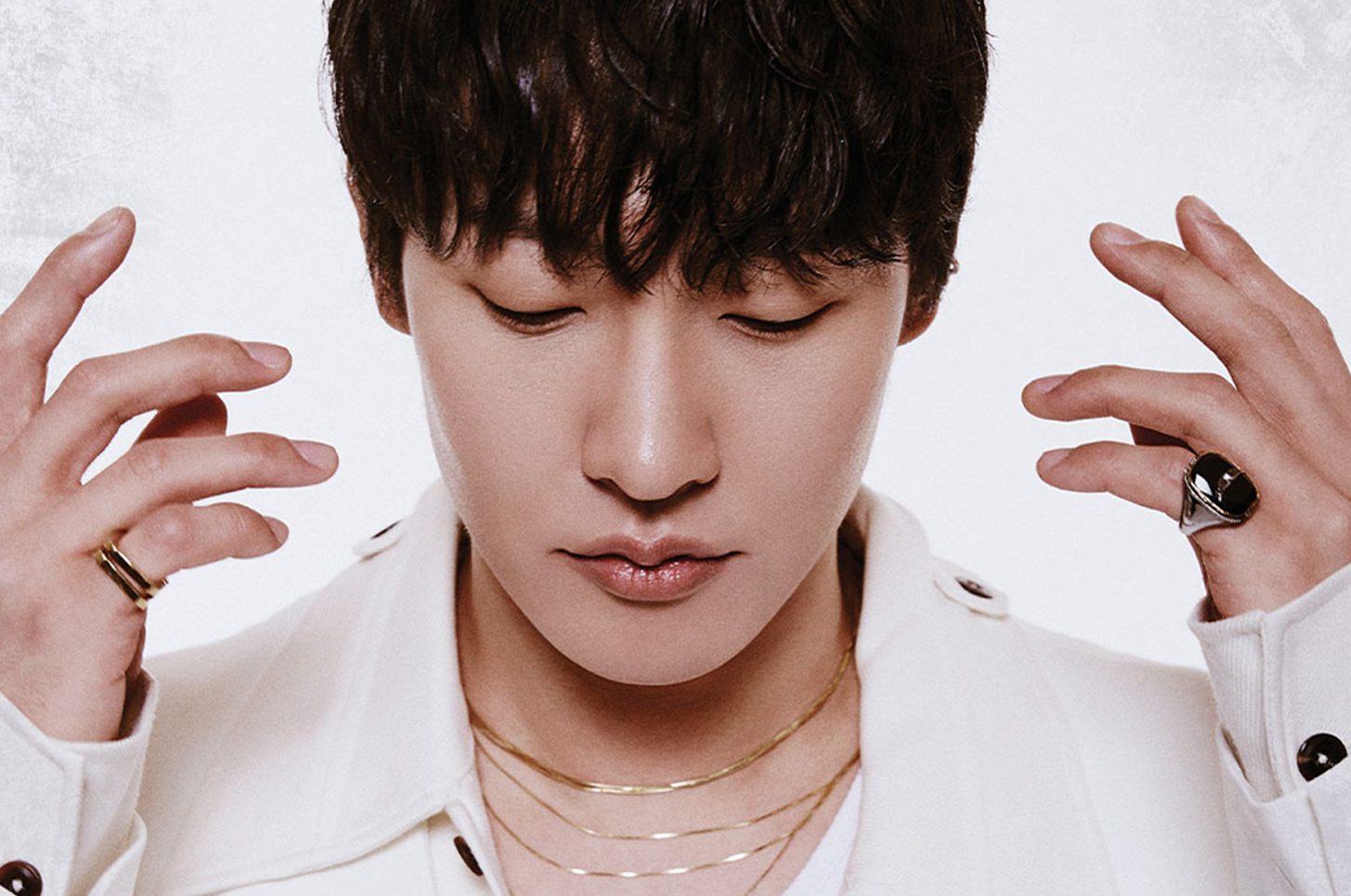K-POP NOW
Not since the teen pop craze of the early 2000s have we seen a music movement quite like this. Acts like BTS and Blackpink have led K-pop boldly into the mainstream, winning fans around the globe with catchy hooks, colorful videos, and irresistible personalities. But that’s only a sampling of what Korea’s hottest acts have to offer. While K-pop isn’t a new phenomenon — the supergroup Super Junior just celebrated their 15th anniversary, and rapper CL is as relevant as ever, five years after her longtime girl group 2NE1 broke up — it’s never been a more exciting time to be a K-pop fan. Today, a new wave of artists is pushing the genre forward with A-list collaborations, adventurous new sounds, and surprising emotional heft. Just as Latin pop has become a major global force over the past decade, the best K-pop songs transcend genres, languages, and borders with ease. In fact, as these six artists prove — from hot new groups to solo stars changing the game — K-pop isn’t defined by where you’re from anymore, but rather, where you’re ready to let the music take you. TIM CHAN
CHUNGHA A triple threat who sings in Korean, English, and Spanish
If there were any doubt left that K-pop is a truly global phenomenon, just listen to Chung Ha, the singer-dancer-choreographer who stormed onto the international scene this year with her reggaeton-tinged hit “Demente.” The single marked the first time a K-pop artist released a song sung entirely in Spanish, and immediately won over fans both old and new. Born in Seoul and raised in Dallas, Chung Ha, 25, says she’s always wanted to be an artist for everyone, regardless of their location, language, or genre of choice. The songs on her debut album, Querencia, run the gamut from hard-charging EDM to house, hip-hop, and flamenco pop, with hints of Caribbean beats and grime thrown in for good measure. The mixture of styles and inspirations is something the one-time girl-group member says she wanted to experiment with when she first launched her solo career in 2017. “I have always been interested in music from different cultures around the world, and I love challenging myself on any project that I jump into,” she says. “It’s not exciting to stay within one single concept.” Movement has always been a part of Chung Ha’s life. After spending the majority of her childhood in the U.S., she returned to Korea to pursue a performing career, eventually studying dance at university. Known for her hip-hop moves and off-the-cuff choreography — compilation videos of Chung Ha freestyling have amassed tens of millions of views on YouTube — she eventually won a spot in the 11-piece girl group I.O.I as the lead dancer and a lead vocalist. After a short-lived run with the group, Chung Ha is making moves once again, this time as a solo artist. Querencia got rave reviews on its release this February, with fans and critics alike praising its diversity of musical styles and melodic themes. Chung Ha’s voice is one of the most versatile in K-pop, able to transition from delicate whisper notes and flirty come-ons to full-out diva belting, all while singing effortlessly in Korean, English, and Spanish. She says that’s a result of growing up in the cultural melting pot of America. “I spent my childhood in the U.S., and I made lots of friends from different cultures and backgrounds, which allowed me to be naturally exposed to American pop culture, Latin pop, and Spanish language,” she says. “Instead of being timid or afraid because of the barrier that different languages give, I want to challenge myself to sing in many languages.” While the pandemic stalled her plans for touring, Chung Ha is eager to return to the stage when it’s safe, for what promises to be a dynamic live show. And while she may have sung about being a little “demented,” in Chung Ha’s world that’s a good thing: Whether she’s switching up her languages or her dance moves, she’s always keeping fans on their toes, so they never know what to expect next. T.C
ENHYPEN Lucky number seven for a new boy band
There is no shortage of boy bands seeking to lay claim to the K-pop throne these days — but when it comes to pure trajectory, few groups are climbing toward those heights as quickly as Enhypen. Shortly after being chosen by fans last fall as the last singers standing on I-LAND, a Making the Bandstyle reality show in Korea, the seven-member group (Heeseung, Jay, Jake, Sunghoon, Sunoo, Jungwon, and Ni-ki) won New Artist of the Year honors at the Gaon Chart Music Awards, which measure numerical success. They went on to take home additional Rookie of the Year titles at three other major award shows in Asia — all before even releasing a full LP. If their sudden rise to fame seems surprising, it helps to understand the team behind them: Enhypen is the first group created by Belift Lab, a new joint venture between Big Hit Entertainment (HYBE) and CJ ENM, the powerhouse firms that brought the world major K-pop groups like BTS and Seventeen. Positioned as a “global boy band,” with members from South Korea, Australia, Japan, and the U.S., Enhypen hope to push K-pop forward by shedding the slick production and manufactured beats for a casual swagger that feels more honest — and a lot more fun. Their debut single, “Given-Taken,” wouldn’t have sounded out of place on a Weeknd album, while fan favorite “Let Me In (20 Cube)” has a Nineties boy-band energy. “Our music captures our personal stories,” says Heeseung, described by his bandmates as the “trustworthy eldest brother” of the group (though Jay quips that he “sometimes acts like the youngest”). And though they’ve already achieved a lot in a short time, the guys say they don’t feel any pressure to live up to the groups that have come before them. “Rather than feeling pressured, we feel great respect when we see the successful artists who have come before us,” says Jungwon. “We are learning a lot from their journey, and we’re doing our best to carve out a path of our own as well.” Still, as part of Belift Lab, they do have a great example to follow. “There are many international as well as K-pop artists that we look up to,” adds Sunghoon. “Among them, however, we’ve always admired BTS most, who have created their own path to become global superstars. We’re inspired by them and determined to become artists like them one day.” T.C
AESPA The new girls on the block are ready to take over the town
Aespa have only three songs out, but they have already shown incredible range for a budding supergroup. The quartet (Karina, Winter, Giselle, Ningning) was assembled last year, becoming SM Entertainment’s first new girl group since the popular Red Velvet six years earlier. “From the moment it was decided that we were going to debut as Aespa until now, we’ve always had great teamwork and communication, with many heart-to-heart conversations,” Giselle says. “I think we were able to build a stronger bond because we were always open to talking about our feelings and what’s on our minds.” Aespa’s first single, “Black Mamba,” introduced them to the world as a powerful pop act, with its heavy synths and dubstep-y beat. Their second song, “Forever,” showed off a softer side. “We receive inspiration from other artists, but instead of trying to become like someone else, we want to create our own music genre,” Karina explains. All four members knew they wanted to pursue music from a young age, and they were raised on a diverse array of genres and artists. Karina’s grandmother played her plenty of older Korean songs, while her mom got her into classical and jazz. Winter’s older brother played in a band, so she loved guitar-driven music. Giselle’s influences are perhaps the widest ranging: She cites everything from Stevie Wonder to Blink-182 to Ariana Grande, with her taste leaning toward rock and R&B. And Ningning’s personal hero? “Beyoncé is always on my playlist.” While the pandemic has proved challenging, Aespa have done what they can to make the most of these unprecedented circumstances. As a group, it’s all they know. “Watching the staff work so hard with their masks on makes us want to work even harder,” Winter says of recording music and videos during this time. “We are sad that we can’t meet our fans in-person and perform in front of an audience, but we’re always trying to utilize various social media and video platforms like YouTube, TikTok, Instagram, and Twitter to showcase the different sides of us that you don’t necessarily see in our music videos or performances.” (They’ve also promoted the group with virtual avatar versions of each member.) Aespa are planning much more in the near future, and Karina has her own wish list for what she hopes they get to showcase — including their great harmonies, more rapping, and chances to share their own stories in the songs. “I’m sure that our song lyrics will get more interesting as they tell a story of our adventures in that world,” she explains, “adding on to the fun in uncovering the full story with each new release.” B.S.
JAMIE All grown up and ready for a new spotlight
South Korean singer Park Jimin — better known as Jamie — rose to fame at 14 after winning the Korean competition show K-POP Star , where she earned the nickname “Korean Adele” for her vocal chops. Now, after some time spent out of the spotlight, the 23-year-old is back with an edgy new sound and assertive lyrics that are helping to shed her reality-TV persona for good. This year, Jamie was featured alongside Doja Cat and Saweetie on a remix of their hit “Best Friend,” and released the bouncy, Ariana Grande-style “Numbers,” a rapped/sung track that takes aim at people who use social media for clout. These songs are a far cry from the carefully crafted image often associated with female K-pop acts — and they may come as a surprise from an artist who grew up listening to Celine Dion and singing in church. But to hear Jamie tell it, she’s never been interested in being a “perfect pop star.” “My music is very real, it’s very raw, and when you see the lyrics, it’s not like it’s filtered,” she declares. “And I would like the fans to actually feel the same way — that you don’t have to filter yourself.” Jamie says she’d like to follow the lead of artists like Jhené Aiko, Grande, and Kehlani — “all the powerful women out there.” And though she knows it may take a while for some audiences to embrace her grown-up look and lyrics, she has no intention of limiting herself when it comes to subject matter or genre. “In music, there are no boundaries,” she adds. “If there’s good music that I feel into or that I vibe into, I would love to throw myself into it.” T.C
ITZY A girl group that’s blazing a new path of its own
“I really want to take a selfie with the crowd,” Itzy’s Lia says. “I just miss them,” Chaeryeong adds. Assembled in 2019 by JYP Entertainment, Itzy had embarked on only one showcase tour before the pandemic grounded them back in South Korea. But that didn’t slow the group down for long. They released their second and third EPs last year, and have focused on finding ways to interact with their fandom, known as Midzy, via social media and virtual events, like the global livestream they did this March. The group’s five members (who also include Yuna, Ryujin, and Yeji) say they learned how much they loved to sing and dance by watching K-pop groups like Girls’ Generation and attending the circus as kids. Prior to being chosen for Itzy, several members cut their teeth on Korean reality shows: Chaeryeong appeared on both K-pop Star 3 and the survival competition Sixteen, while Ryujin and Yeji made appearances on two other survival series. After attending JYP training, Ryujin admits that she wasn’t expecting to make it into the girl group. “It was very weird because there were so many trainees at JYP,” she says. “There were so many pretty and talented people. I was surprised that I was chosen.” That shock doesn’t come across in the music. Itzy’s sound is confident, hyped, and in your face. And as much as they all look up to the idols that preceded them, they want to make sure their sound is all their own. “We don’t have a role model,” declares Yeji. “We just want to be Itzy.” BRITTANY SPANOS
TXT Leaders of the fourth generation of K-pop: a boy band that feels like family
A s the first boy band to debut under Big Hit Music since BTS, the guys in Tomorrow X Together (TXT for short) know they have their work cut out for them. But rather than follow in the footsteps of their labelmates, Soobin, Yeonjun, Beomgyu, Taehyun, and Hueningkai say they’re using the pressure as motivation to prove themselves on their own. Their fandom (known as “Moa” or “Moments of Alwaysness”) helped TXT attract a ton of buzz in 2019, with their first EP becoming the highest charting debut release by any male K-pop group in history. The guys have also made a name for themselves in the highly saturated K-pop space with their signature sound, which dabbles in disco, shoegaze, indie rock, and pop. “We try to tell stories only we can tell, so I think our albums to date naturally have contained a lot of emotions and thoughts from the teen perspective,” Yeonjun says. The messages behind Tomorrow X Together’s music are similarly distinct, as they connect with their listener base through personal stories about the growing pains that come along with being a teenager. Looking back on how each member has grown, Beomgyu recalls their group dynamic when they were first starting out. “At first, it was sometimes difficult to understand each other because each of us has very different backgrounds,” he says, citing their varying interests and life experiences. “We’ve communicated a lot since then, and we’ve been together for a long time, so now we only need to meet eyes to know what the other is thinking.” Looking ahead, Beomgyu says he wants TXT to be known as a group “that’s just like a family. It’s really cool that I can lean on my members during tough times, and vice versa. And we also want to be [our fans’] best friends.” KRISTINE KWAK


